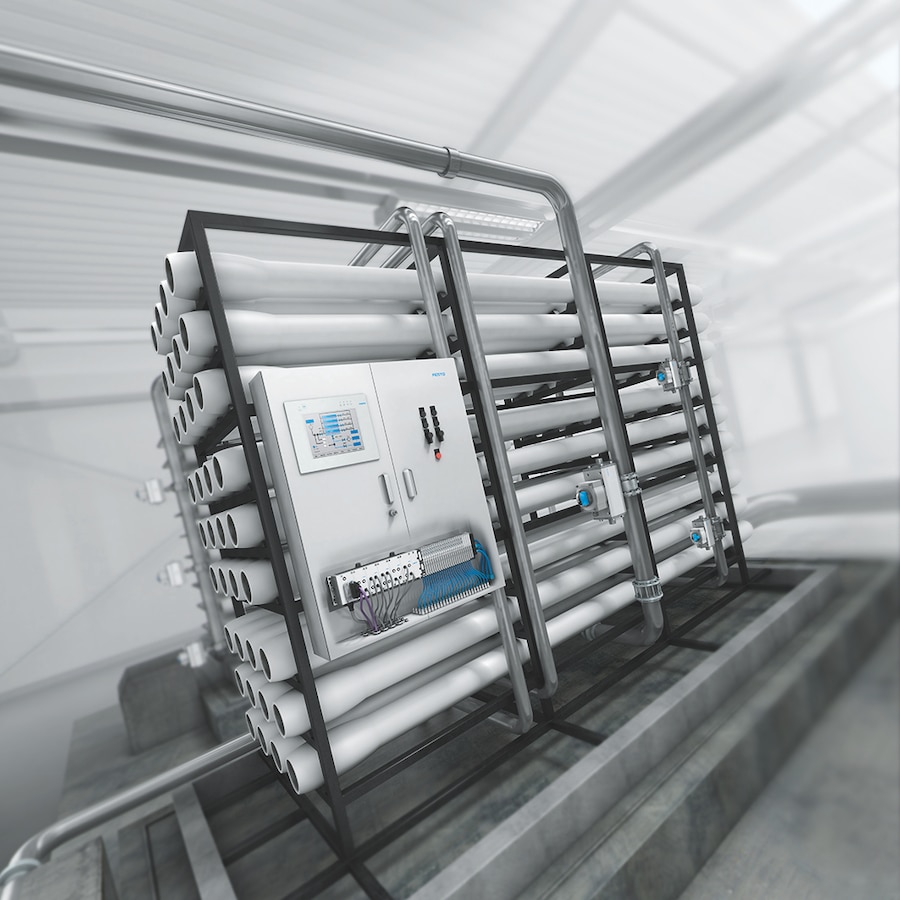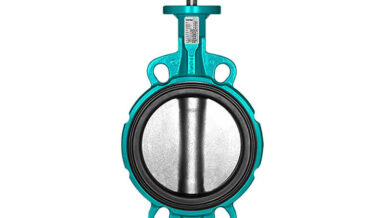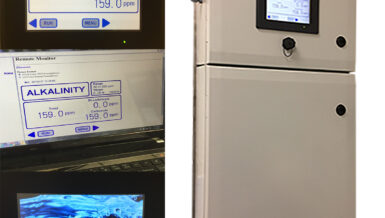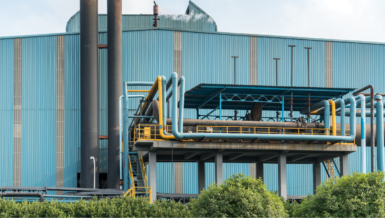Highly flexible and modular production plants with decentralised automation enable the process industry to react to fluctuations in demand. This is the case in water treatment, in the pharmaceutical, fine chemical and food industries and also in energy generation. Decentralised controllers from Festo are perfect for this. Festo developed the PA-Toolkit for programming these controllers to enable simple application engineering in line with the “Module Type Package” (MTP) from Namur and ZVEI.
Decentralised automation of modular plants also enables manufacturers of water treatment plants to respond more easily to fluctuations in water consumption or raw water with higher levels of contamination. This means that plants can be upsized or downsized as required with minimal effort. Decentralised intelligent solutions also make it easy to reconfigure application software in the higher-level systems – without the need for complex reprogramming.

Numbering up instead of scaling up
The modules can be integrated into the overall automation solution for the production process with little effort. This allows several automated modules to be added to the plant without having to extend the automation technology of the overall plant. “It is important to be able to expand or modify plants easily without having to move immediately to large-scale plants. In other words, numbering up instead of scaling up,” explains Dr. Eckhard Roos, Head of Key Account and Industry Segment Management Process Industries at Festo.
The Module Type Package (MTP for short) provides a standardised software interface between the decentralised controller and the process control system. Its objectives are fast commissioning of new production plants and easy modification of production processes so that the production volume can be increased or decreased at short notice or even so that individual subprocesses can be replaced with other ones. The Module Type Package contains definitions for a series of control-related assets. These can be the interfaces of real or functional components, module service descriptions or operator display symbols. They are arranged hierarchically based on their function (e.g. binary valve or analogue motor).
Intuitive module development
The associated relocation of automation intelligence from the control system level to the module’s own controller does, however, mean new challenges for machine builders. It is precisely these challenges that Festo addresses with the PA-Toolkit, a library for Codesys giving module developers a tool for intuitively generating the complete automation solution, operator display visualisation and MTP description file. This greatly simplifies the programming of decentralised controllers like the CPX-CEC from Festo.
A comprehensive set of predefined function blocks and corresponding symbols provides an easy way of developing control logics and visualisations. Suppliers of process engineering units can implement the automation logic without the need for more in-depth programming expertise.
The user interface is a key aspect of the MTP. The PA-Toolkit therefore contains an extensive selection of symbols, which includes all symbols specified in the MTP. To use the full functional scope of the symbol, simply link the symbol with the corresponding function block of the component. The interfaces defined in the MTP standard are used so that all functionalities can be used in the same way in any MTP-capable control system.































